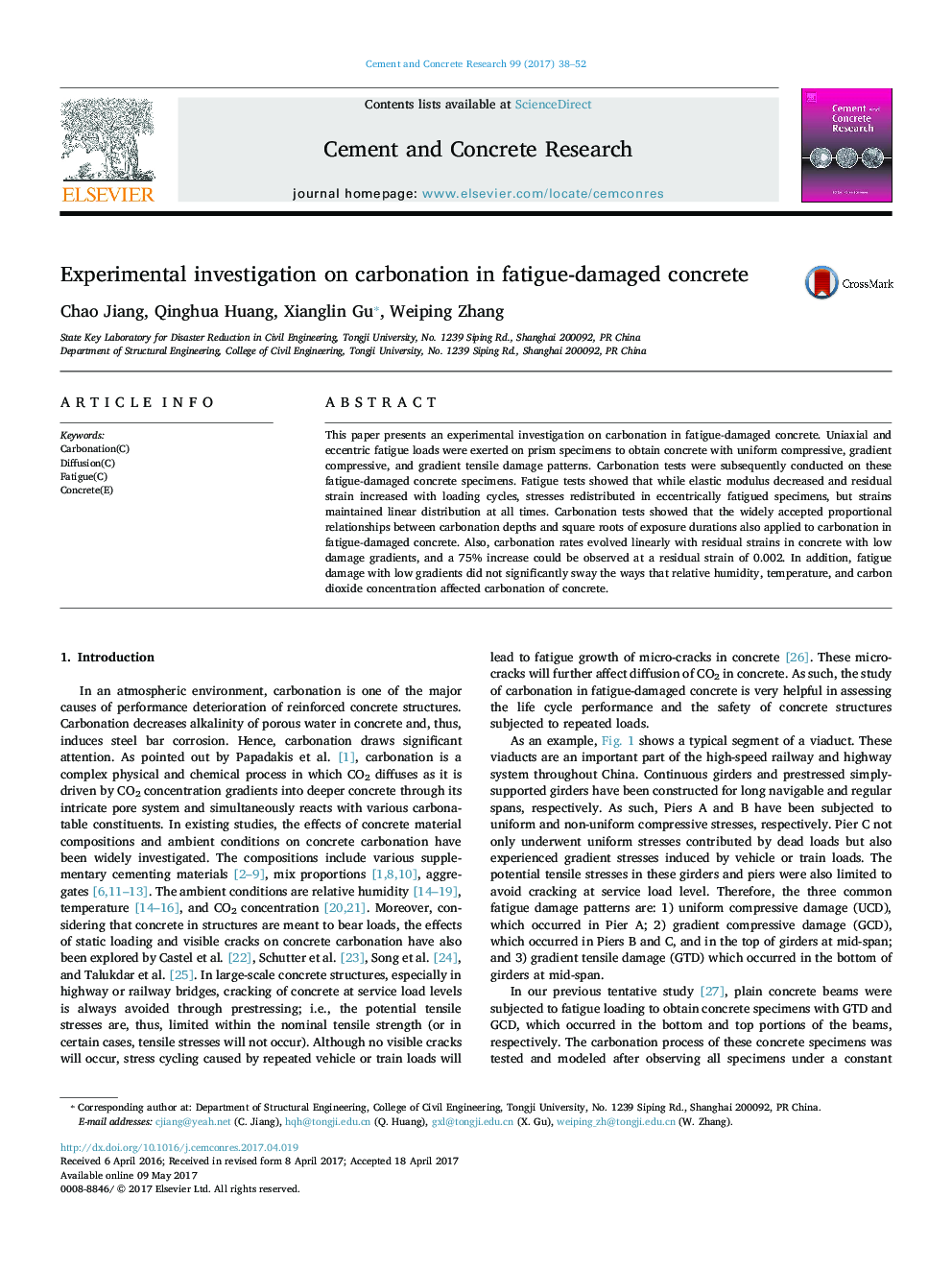| Article ID | Journal | Published Year | Pages | File Type |
|---|---|---|---|---|
| 5437128 | Cement and Concrete Research | 2017 | 15 Pages |
Abstract
This paper presents an experimental investigation on carbonation in fatigue-damaged concrete. Uniaxial and eccentric fatigue loads were exerted on prism specimens to obtain concrete with uniform compressive, gradient compressive, and gradient tensile damage patterns. Carbonation tests were subsequently conducted on these fatigue-damaged concrete specimens. Fatigue tests showed that while elastic modulus decreased and residual strain increased with loading cycles, stresses redistributed in eccentrically fatigued specimens, but strains maintained linear distribution at all times. Carbonation tests showed that the widely accepted proportional relationships between carbonation depths and square roots of exposure durations also applied to carbonation in fatigue-damaged concrete. Also, carbonation rates evolved linearly with residual strains in concrete with low damage gradients, and a 75% increase could be observed at a residual strain of 0.002. In addition, fatigue damage with low gradients did not significantly sway the ways that relative humidity, temperature, and carbon dioxide concentration affected carbonation of concrete.
Related Topics
Physical Sciences and Engineering
Engineering
Industrial and Manufacturing Engineering
Authors
Jiang Chao, Huang Qinghua, Gu Xianglin, Zhang Weiping,
